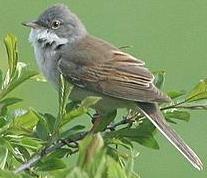 據6月2日公佈的研究號顯示,在非洲大陸建立一野生動物保護區網絡至關重要。特別是保護大陸上高達90%受氣候變遷影響的鳥類。
據6月2日公佈的研究號顯示,在非洲大陸建立一野生動物保護區網絡至關重要。特別是保護大陸上高達90%受氣候變遷影響的鳥類。
杜爾罕大學的生物學家用電腦程式,模擬推演「溫和」氣候變化對815種,在非洲撒哈拉以南和保護區網點内受保護鳥類的影響。並稱以上地區作「重要野鳥棲地。」
這項研究證明,非洲的立法者肩負保護科學家稱為「綠色通道」的生態系統。在溫度不斷上升的情況下,替野生動物找到新的、更舒適的棲息地。40%以上的非洲重要野鳥棲地沒有受到任何國內或國際法的保護。
杜爾罕大學的生物學和生物醫學家威利斯(Stephen Willis)博士說:「重要野鳥棲地可以提供新的棲息地,給那些目前因氣溫和降雨量變化,導致食物來源缺乏而被迫搬遷的鳥類。」
據刊登在「生態學通訊」(Ecology Letters)日報的研究發現,「未來75年間,氣候變化的影響對某些地區物種而言,大於其他物種。」
威利斯表示:「只要保護區不受任何破壞,目前非洲中部地區的許多物種就能存活下來。相反地,非洲熱帶高地地區,如喀麥隆,南非和依索比亞等國,將發生諸如40%以上的鳥類被迫飛離家園的巨大變化。」
研究人員對863個跨越42個國家和地區,覆蓋約2百萬平方公里( 約為130萬平方英里),約佔7%非洲大陸的重要野鳥棲地網絡保護區進行觀察。
設定保護區網點保護在全球受到威脅,或受特定環境因素鉗制的鳥類,至關重要。
他還說:「結果顯示,未來,90%在非洲的優先物種將在保護區的網絡裏找到適合它們棲息的氣候。然而,10隻鳥裏將有一隻不得不尋找新家和繁殖地,這意味著重要野鳥棲地網絡會陸續添加新的網點。」
該科研小組的研究人員有「國際鳥盟」(Bird Life International)和提供這次研究經費、國際鳥盟在英國的合作夥伴「英國皇家保護鳥類學會」(RSPB)。
負責該保護協會氣候變化的戴維斯(Ruth Davis)說:「看守重要野鳥棲地對野生動物的未來極爲重要。而保護自然資源和生態系統對人類也同樣的重要。健全的生態系統對許多世界上最貧窮的人而言,是抵禦氣候變化影響的第一道防線。」
A network of wildlife conservation areas across Africa will be vital in helping to save up to 90 percent of bird species on the African continent affected by climate change, according to new research released today.
Led by biologists at Durham University, the computer modeling study probed the effects of "moderate" climate change on 815 bird species of conservation concern in sub-Saharan Africa and on the network of sites designated for them, known as Important Bird Areas.
The findings suggest that it is up to African legislators to protect ecosystems that can serve as what the scientists call "green corridors" to help wildlife find new, more comfortable areas when their habitat heats up. More than 40 percent of African Important Bird Areas lack any form of legal protection under national or international law.
"Important Bird Areas will provide new habitats for birds that are forced to move as temperatures and rainfall change and food sources become scarce in the areas where they currently occur," said Dr. Stephen Willis from the School of Biological and Biomedical Sciences at Durham.
Published in the journal "Ecology Letters," the study found that over the next 75 years, climate change will affect the species of some regions more than others.
"The central regions of Africa should maintain many of their current species as long as the protected areas remain intact," Willis said. "By contrast, areas of the Afrotropical Highlands, which occur in countries such as Cameroon, South Africa and Ethiopia, will see enormous change with more than 40 percent of species leaving."
The researchers looked at a network of 863 Important Bird Areas across 42 countries and territories covering around two million square kilometers (1.3 million square miles), about seven percent of the African continent.
The sites are identified as being critical for the conservation of bird species that are globally threatened, restricted in range or to particular environmental conditions.
"The results show that 90 percent of priority species in Africa will find suitable climate somewhere in the network of protected areas in future. However, one in 10 birds will have to find new places to live and breed so new sites will have to be added to the IBA network," Willis said.
The scientific team included researchers from BirdLife International and the Royal Society for the Protection of Birds, RSPB, which is the BirdLife partner in the UK and funded the research.
Ruth Davis, head of climate change at the RSPB, said, "Looking after IBAs is vital for the future of our wildlife. Protecting the natural resources and services provided by these ecosystems is vital for people too. Healthy ecosystems are the first line of defense against the impacts of climate change for many of the world's poorest people."



